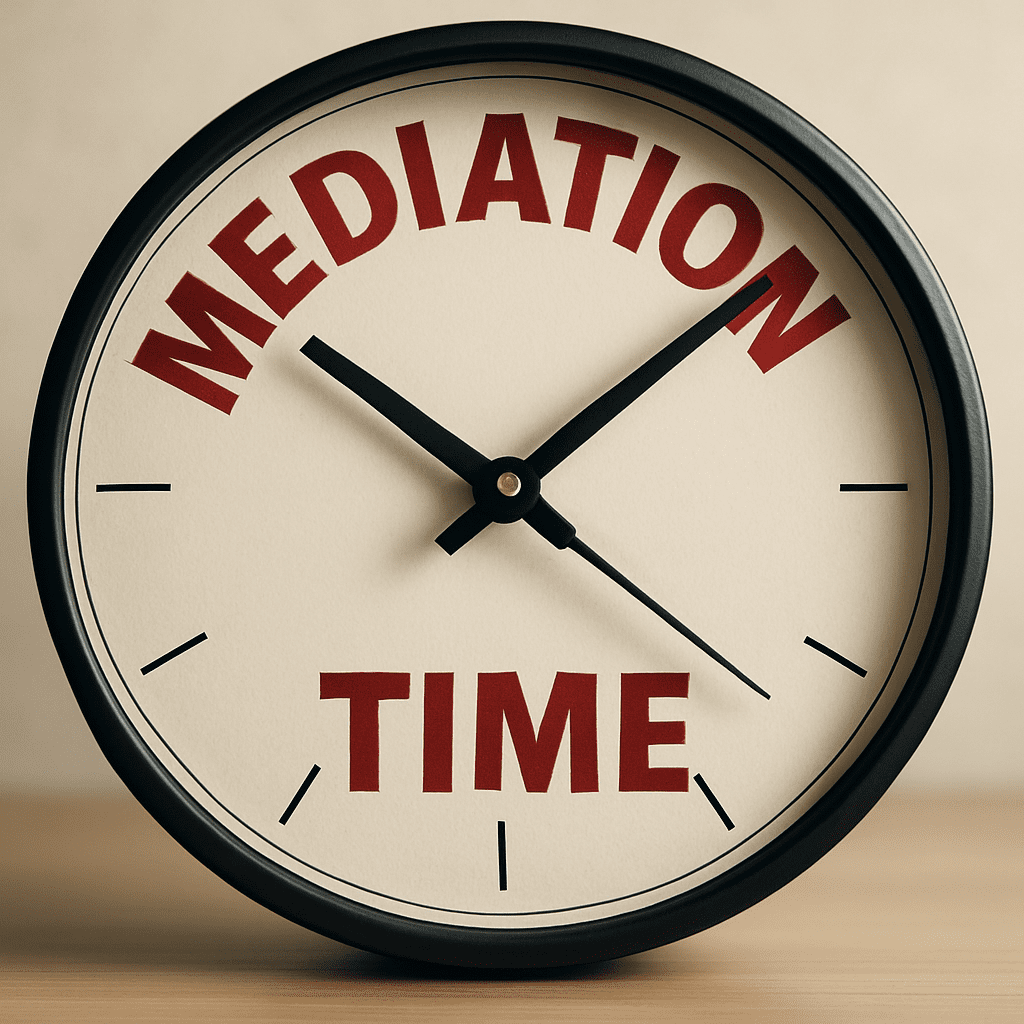How Mediation Could Resolve the Trump v BBC Dispute

A Public Dispute with Private Consequences
—————————————–
Recent headlines have focused on former US President Donald Trump’s threat to sue the BBC for US $1 billion over an edition of Panorama which allegedly edited a clip of his 6 January 2021 speech in a misleading way. Trump’s lawyers claim this caused significant reputational and financial damage, while the BBC insists it was an error rather than intentional distortion.
What follows is the familiar escalation of a public reputational dispute — accusation, counter-statement, legal threat — but it also represents a perfect opportunity for mediation to achieve resolution far more effectively than litigation ever could.
Why Mediation Makes Sense
————————-
In cases like this, mediation offers clear advantages for both parties:
– Protecting reputation – A drawn-out court battle would keep the story in the headlines and risk further damage for both sides. A mediated process can lead to a mutually agreed statement and draw a line under the issue.
– Saving cost and time – Litigation across UK and US jurisdictions would be extraordinarily expensive, complex and uncertain.
– Addressing interests rather than positions – Trump wants to restore his reputation and secure an acknowledgment of harm; the BBC wants to preserve editorial integrity and public trust.
– Confidentiality – A mediation process can take place discreetly, away from the glare of cameras, allowing candid discussion.
– Constructive outcome – Mediation can produce a wider solution addressing systemic or procedural issues within the BBC’s editorial processes.
A Structured Framework for Resolution
————————————-
A tailored mediation framework could look like this:
1. Preparation
Both sides would appoint a respected, neutral mediator with experience in media and reputation disputes. The scope of the mediation would be defined – covering any retraction, apology, compensation, and editorial process review. Each side would exchange key documents such as transcripts, editing records, and impact assessments.
2. Joint Session
The mediation would begin with each party presenting their perspective:
– Trump’s team explaining how the broadcast allegedly misrepresented him and caused measurable harm.
– The BBC acknowledging the mistake, setting out the editorial process and the steps already taken to address it.
The mediator would identify areas of agreement and narrow the issues in dispute.
3. Exploring Interests
The mediator would guide both parties to move beyond blame and focus on underlying needs:
– For Trump – public recognition, restoration of reputation, potential redress.
– For the BBC – editorial credibility, learning from mistakes, reassurance to the public and regulators.
4. Option Generation
Creative solutions could include:
– A public correction and apology prominently aired.
– A joint statement acknowledging the editing error and reaffirming commitment to accurate journalism.
– A review of editorial processes, with recommendations for training and governance improvements.
– A symbolic payment (perhaps to charity) acknowledging the reputational impact without admission of liability.
– A follow-up programme or interview providing Trump an opportunity to respond directly.
5. Agreement and Implementation
The parties could sign a written settlement agreement, setting deadlines for publication, compensation and follow-up. A joint press release would communicate the outcome positively — focusing on transparency and learning rather than conflict.
Key Issues for the Mediator
—————————
A high-profile case of this nature raises several sensitive issues the mediator would have to manage carefully:
– Jurisdiction – US and UK defamation laws differ greatly; mediation avoids the jurisdictional tangle of cross-border proceedings.
– Freedom of speech vs reputational harm – The BBC must preserve editorial independence while recognising the right to correction.
– Public interest and transparency – Any resolution must maintain public trust in the BBC’s role as an impartial broadcaster.
– Power imbalance – The mediator must ensure neither side dominates due to political influence or institutional status.
– Implementation and oversight – Agreements must be specific, measurable and followed through.
A Model Mediated Outcome
————————
A realistic, well-balanced settlement could include:
– The BBC issues a formal apology and on-air correction for the misleading edit.
– An independent review of editorial governance and compliance processes is commissioned, with findings made public.
– A payment to a media ethics foundation or charity nominated by Trump, symbolising recognition of reputational impact.
– The BBC agrees to feature a balanced segment or interview allowing Trump to put forward his perspective.
– Both parties issue a joint public statement recognising the importance of responsible journalism and mutual respect.
Lessons for Future Disputes
—————————
This dispute illustrates the increasing need for mediation in media-related conflicts. Allegations of misrepresentation, “fake news”, or biased editing now travel globally within minutes. Traditional litigation cannot keep pace with the reputational damage that public figures or organisations can suffer overnight.
Mediation offers a faster, less adversarial, and more restorative process. It allows the parties to agree not only on redress but also on how to prevent similar issues arising again — for example, through better training, editorial review, or public communication strategies.
The ProMediate Perspective
————————–
At ProMediate, we believe that disputes involving reputation, communication and trust — whether between individuals, corporations or public bodies — are ideally suited to mediation. A skilled mediator can help transform confrontation into collaboration, ensuring that the outcome protects reputations, saves costs, and promotes accountability.
The Trump–BBC controversy, though extreme in scale, highlights the universal truth that mediation works best when the stakes are highest. Where litigation amplifies conflict, mediation reduces it; where public blame divides, dialogue can heal.
